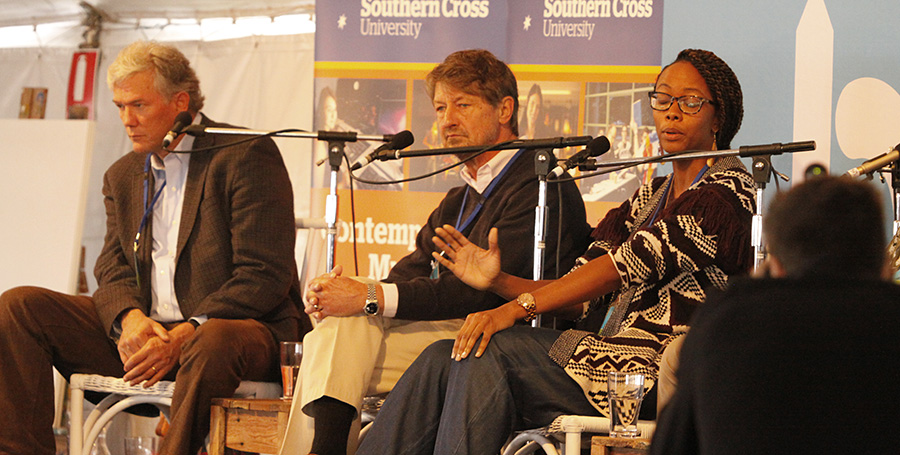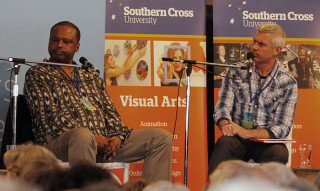The State of the United States: Racial tensions and the Trump problem

If I’ve taken away anything from the panelists at The State of the United States session, it’s that nothing brings people together quite like mutual despair, and nothing inspires mutual despair like the looming potential of a ‘President Donald Trump’.
The Friday session featured a numerous and unique mix of panelists from varied political leanings and states. Panel chair Ben Knight, an ABC Australia correspondent who has been on the forefront of many major events around the world, prefaced the panel by saying: ‘We can spend an hour talking about Donald Trump – we’re not going to do that!’
But it’s pretty much impossible to talk about American politics in 2016 without mentioning what sort of candidate the political turmoil has made possible. Something all of the panelists could agree on was that Trump’s candidacy and relative success are a direct result of the socio-political climate that America currently faces.
Jeffery Renard Allen, author and judge for the United States’ National Book Award, believes that the main problem facing the US is dishonesty concerning its history, in that it chooses to ignore the fact that after the civil rights movements, many Southerners fled to the Republican party because they didn’t agree with the end of slavery and segregation. The country also tries to leave behind its legacy of slavery and the mass genocide of the people indigenous to North America.
In this way, Allen believes that Trump’s rhetoric about the ‘good old days’ of American politics are actually idealizing of early American history, where white people enjoyed relative upward mobility.
Panelist Angela Flournoy, author of The Turner House, reminded that rhetoric will never serve to reverse long-standing views on racism in the US, especially while the country continues to deny the problem exists.

Pulitzer Prize winner and staff writer for The New Yorker, William Finnegan also noted that the perceived ‘white downward mobility’ which started in California long before it started in the rest of the country, and which threatens the white middle class way of life, exactly fuels the sort of fears that someone like Trump needs to generate political support.
P.J. O’Rourke, a political conservative and satirist, labelled the current election ‘a disaster’.
‘I am a political satirist,’ he said, ‘and this election has been self satirizing.’
While his mood was relatively light-hearted, there was some cynicism underneath it all, which I think reflects the general American opinion on the state of the nation at this time.
O’Rourke, like others on the panel, will be voting for Hillary Clinton in November regardless of a poor personal opinion of her, simply because Trump is so dangerous.
What was the takeaway from all this? Well, O’Rourke predicts the total annihilation of the Republican party, and I think that’s probably imminent.
But the underlying problem is that as long as racial tensions grow and the middle class continues to be denied the ‘American Dream’ (which never really existed in the first place), there will always be another Donald Trump to take this one’s place. The panelists seemed to echo these thoughts. In order to reach progressive change, America will have a lot of social problems to solve, and a lot of failures to answer to.
Report by Megan A. Morgan, a Writing/Visual Arts student at Southern Cross University. Originally from Massachusetts, she holds a prior degree in English from Umass Amherst.
